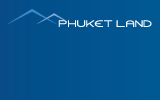Further Reading:
Taxes on Property Ownership

A regular reader of this column from New York e-mailed to ask "In the USA, property owners pay an annual property tax to the local or state government based on the assessed value of the property. For coop owners, their portion of the building property tax is included in the monthly maintenance. Condo owners pay the tax directly, as do owners of private homes and commercial buildings. Is there an annual property tax assessed in Thailand? If I purchased a condo, would I be liable for such a tax?"
There are no property taxes per se in Thailand that are the exact equivalent to the taxes you describe, there are however two taxes that together are in effect comparable. These are the land tax and the Structures usage tax.
There is a very small tax levied on land ownership - a sum of just a few Baht per rai per year - a sum so small that the land office, the body charged to collect it, very rarely bothers to do so - and if they do may wait for several years for fees to accumulate before bothering to collect it. In any commercial sense this tax can be largely discounted.
Structures Usage tax, as the name implies relates to buildings - this is a tax collected by the local Tessaban (municipal) office, if such exists or by the district office if it does not. The tax is only applied on properties used for commercial purpose. It does not apply to a private residence lived in by the owner and his family. It does however apply to a property that is rented or let to a third party - or used by it's owners (even in part) for commercial purpose as say an office or a shop.
Structures usage tax is assessed at the rate of 12.5% of the "notional" rental value of the property. Important here is the concept of "notional" or assessed values - these are discretional and to some degree negotiable - and will in reality typically be agreed at about 1/6 of the actual market rental value. As such this tax in practice works out to be in the order of 2% per annum of the market rental value or under 0.2% of the freehold market value. Structures usage tax should not however be confused with the income tax that would also be assessed on any income from property rental (on a sliding scale that starts at just 5% for the first 100,000 Baht of annual income and rises to a maximum of 37% for income in excess of 4,000,000 Baht)
The situation for a condo or an apartment building is essentially the same as described above save that in many cases the building / body corporate will be the one to negotiate and pay these taxes and then include them within or bill them to individual unit owners along with the annual condo dues.
A difference between a private home owner and a condo owner, in the situation where the property is being rented, will be that if in a private home situation letting was arranged privately, it may never come to the attention of the authorities that the property is being let and thus you may never get assessed - in a condo or serviced apartment, it's quite likely that rentals will be on a short term basis and managed through (and publicly promoted by) a central letting agency. In this circumstance the municipal office will very soon be aware of the business use and in most cases go directly to the letting office and assess them (usually on a negotiated basis for all the building or at least all the units under management) - and they in turn will deduct your share of this assessment from rental income that they are collection on your behalf.
In short for most homeowners the housing tax is non existent or at least very low. The counter side of this low cost is that since the municipality is not collecting much money from property owners, they have very little to spend on public services - so services such as garbage collection, water supply, municipal works - are either not provided, underprovided or if they are provided will often be charged for on a usage basis and arrangement that is actually quite favorable to those who do not make full time use of their homes.
|
|
|


